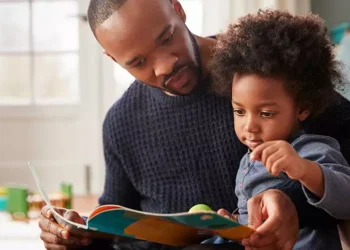“Safeguarding is everyone’s responsibility. The aim is to help everyone understand the part they can play in protecting children and adults, and ensuring that vulnerable people are kept safe.”
In the United Kingdom, there are legislations relevant to safeguarding and promoting the welfare of children, irrespective of where they came from. For example, The Children Act 1989 places a duty on Local authorities to safeguard and promote the welfare of children who are in need in their area. They are responsible for promoting the upbringing of children by their families, through varied appropriate services, suitable to the needs of the children.
All sections and sub-sections under the act serve the purpose of protecting every child in the United Kingdom. For the reasons of protection and safeguarding, every Nigerian and anyone coming going to the United Kingdom must ensure the followings:
9. Train yourself and your child on how to understand, appreciate, respect differences, and support others, irrespective of differences. It will help them in their engagements and relationships with schools, the police, the General Practitioner, social workers and so on. This helps to keep one informed and educated about many things concerning how the United Kingdom society works.
10. Trust, relate with and ask questions from relevant authorities; for example, you can make enquiries from your child’s school about anything you do not understand, or that is affecting your child’s learning, comfort, and protection.
11. Join in and be open to your community and religious groups and your child’s school about cultural beliefs and values, in order to prevent cultural misunderstandings. It will also help them to know and understand you better.
12. Avoid any form of neglect or abuse on your child, no matter how little you think it may be, or how it may have been the norm in your home country.
13. Ensure that your child is never left unattended to, and do not give your child any physical punishment /chastisement.
14. Do not for any reason leave your child at home to go anywhere, even if they are sleeping.
15. Be careful about the adjectives you use on your child, or any child, and watch what you say and do in their presence.
If you adhere to the guidelines above, it would go a long way in protecting you so you don’t get into trouble with the police and the social services. And it would do you and your family members a lot of good.
__________________________________ Fatoki Taiye Timmy is an innovative social development and human rights specialist with 15+ years experience in the development sector and with special focus on the West Africa Region. Has a strong track record of delivering technical support in educational programmes, highly competent in capacity development, institutional reforms, child rights and protection, youth development, and gender issues. He is a high achiever with goal-bound, time-conscious, strategic planning and good interpersonal relations. Has presented a number of papers including a paper on promoting the girl child’s access to education which was presented at the 2008 Bill and Melinda Gates International Youth Conference. Also presented ‘Youth Shadow Report on HIV/AIDS in Nigeria’, a United Nations General Assembly (UNGASS) 2008 Shadow Report with four other people. Skilled in project management, gender issues, child protection, youth development, community engagement, policy development, advocacy and lobbying, capacity, organizational development and mental health crisis management. He is a board member of three NGOs in Nigeria, two of which he is the chairman -Aspilos Foundation and Value Reorientation for Community Enhancement (VARCE). @lagbenjo (tweeter) Fatoki Taiye Timmy (Lagbaja) Facebook Taiye Timmy Fatoki (LinkedIn) Lagbajadon (Instagram). LinkedIn Facebook

















































































 EduTimes Africa, a product of Education Times Africa, is a magazine publication that aims to lend its support to close the yawning gap in Africa's educational development.
EduTimes Africa, a product of Education Times Africa, is a magazine publication that aims to lend its support to close the yawning gap in Africa's educational development.